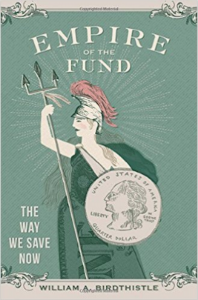Lesley-Anne Scorgie is the founder of MeVest, a money school helping North Americans reach their financial potential. She’s also the bestselling author of Modern Couple’s Money Guide, Well-Heeled and Rich By Thirty. Follow her @LesleyScorgie
 What causes trouble in paradise isn’t who picked up their socks or took out the trash (though those things can be annoying too). It’s money; how it’s spent, saved, invested and given.
What causes trouble in paradise isn’t who picked up their socks or took out the trash (though those things can be annoying too). It’s money; how it’s spent, saved, invested and given.
According to Capital One, 8 in 10 couples fight about money and nearly half feel their partner’s attitude towards money is different from their own. Monetary philosophies are deeply rooted in a person’s values, thus financial compatibility is as important as personality. “Money problems” are cited as a leading cause of divorce and are rarely about money. They’re representations of issues like independence, greed, trust, respect, and commitment.
Take for example a couple where one partner is a compulsive spender and the other is a saver. The saver is bound to feel like their honey is putting the couple’s dreams for the future in jeopardy just to keep up with the latest and greatest cars, clothes, shoes, home décor and more.
Meanwhile the spender has a YOLO attitude and thinks their penny pinching partner is a cheapskate.
How To Understand Your Spouse and Their Views On Money
In this scenario financial brawls are inevitable unless the couple learns to bridge their financial gaps by understanding your spouse and where their views on money came from and by working together towards common financial goals.
Play As A Team
Teamwork and financial boundaries are critical when planning your future with someone. Though you may not like to deal with financial matters, it’s irresponsible to ignore them. Consider the task of checking-up on your finances like regular maintenance on your car. If you care for your vehicle, it will run smoothly and for longer than if you neglect it. You don’t want to find yourself in a bad financial position you weren’t aware you were creating.
Financial ‘chores’ like paying bills, and buying stocks should be shared equally and each partner should be able to perform EVERY financial chore. Just imagine the chaos if your partner got hit by a bus and was in a coma for a month. What would happen if your mortgage was up for renewal or you needed to pay your VISA bill? Would you be equipped to handle those tasks?
The team approach is also necessary to build wealth, which requires couples to play the exact same game that wealthy people play – to keep what they’ve worked so hard to earn.
Budget
The tool that governs the financial boundaries any couple sets in their relationship is a mutually agreed upon budget. It allows you to spend less time worrying about money, and more time on your relationship. And, rather than being restrictive, you can incorporate affordable fun.
Get comfy with your partner, pull up a spreadsheet and identify all sources of income: employment, government support, your “side-hustle” (no, this isn’t dealing meth, it’s a second source of income). Move on and list expenses like mortgage payments, school fees and car loans. Don’t overlook smaller purchases like coffee and banking fees. If you can’t figure out where your money’s going, keep ALL receipts for four weeks; then review. Determine what’s left over – subtract expenses from income. If you’re short, cut back. If you’ve got a surplus, congratulations; you need to save more.






 When it comes to renting an apartment, most people are happy to accept the list price, which has been good news for landlords over the past six years or so thanks to the US housing boom. But, is it every okay to negotiate on rental prices?
When it comes to renting an apartment, most people are happy to accept the list price, which has been good news for landlords over the past six years or so thanks to the US housing boom. But, is it every okay to negotiate on rental prices?
 A generation ago, large numbers of Americans enjoyed the support of pensions offered by their employers. Pensions, of course, guarantee their beneficiaries a steady stream of payments from their retirement until their death. Together with the benefits of Social Security, pensions provided secure retirements to millions of working Americans. The golden age of the pension, however, is effectively over. And it may never have been all that gilded, as not once in the past thirty-five years did more than 40% of American workers ever participate in such a plan.
A generation ago, large numbers of Americans enjoyed the support of pensions offered by their employers. Pensions, of course, guarantee their beneficiaries a steady stream of payments from their retirement until their death. Together with the benefits of Social Security, pensions provided secure retirements to millions of working Americans. The golden age of the pension, however, is effectively over. And it may never have been all that gilded, as not once in the past thirty-five years did more than 40% of American workers ever participate in such a plan.